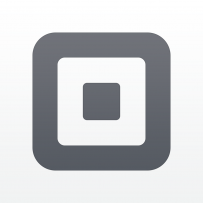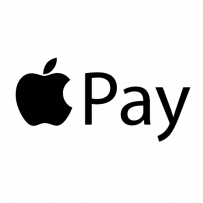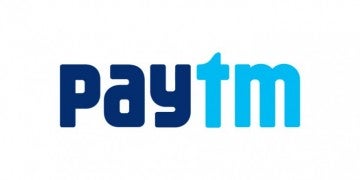1. GoCardless – London
gocardless.com
 What it does: Processes any direct debit payment in a cleaner, simpler, quicker way.
What it does: Processes any direct debit payment in a cleaner, simpler, quicker way.
Why it’s hot: Having become the UK’s leading direct debit provider, the company is launching new products, and focusing its attentions on larger businesses and foreign markets, starting with Europe. Now processing transactions at a rate of $500 million a year.
2. Transferwise – London
transferwise.com

What it does: Transparent, low-cost international money transfers.
Why it’s hot: Recently received investment that values the company at almost $1 billion and has an impressive list of backers. Has transferred £1 billion of its customers’ money and tripled its staff to 300 in the last year with international offices.
3. Stripe – San Francisco
stripe.com
 What it does: Online payments technology allows payments through an app or website.
What it does: Online payments technology allows payments through an app or website.
Why it’s hot: Working on e-commerce with Apple, Facebook and Twitter. Total investment has reached $190 million and the company has recently been valued at $3.5 billion, more than double its valuation less than a year before.
Related content: “The Payment Services Directive: why our big banks need to learn to share”
Related content: “Payments shake-up is a Brexit farewell”
4. Venmo – New York and San Francisco
venmo.com
 What it does: App links to users’ bank accounts and allows instant free money transfers.
What it does: App links to users’ bank accounts and allows instant free money transfers.
Why it’s hot: Although under pressure from newer apps that serve a similar purpose, Venmo is still the best-known mobile app for free money transfers between friends and has the backing of parent company PayPal. Scope to be used by merchants for a fee.
5. Adyen – Amsterdam
adyen.com
 What it does: Payments platform for almost any type of payment, anywhere in the world.
What it does: Payments platform for almost any type of payment, anywhere in the world.
Why it’s hot: Closed a $250-million funding round at the end of last year that valued the company at $1.5 billion and is targeting growth in the Asia-Pacific region. Has signed up 3,500 merchants, including Facebook, AirBnB and Groupon.
6. Tipalti – Israel and Palo Alto
tipalti.com
 What it does: Streamlines and automates business payments to large numbers of payees.
What it does: Streamlines and automates business payments to large numbers of payees.
Why it’s hot: Designed to take care of regulatory and tax requirements, even when payees are in multiple countries. Currently serves more than 250,000 payees globally and processes over $1 billion annually.
Related content: ‘Access is life-changing – we’re denying access to payments accounts to those we should support’
Related content: “Global payments: sparking a remittance revolution”
7. Ant Financial – Hangzhou and Shanghai
global.alipay.com
 What it does: A range of technology-based financial services, including Alipay.
What it does: A range of technology-based financial services, including Alipay.
Why it’s hot: Currently has a user-base of 300 million, handles 80 million transactions a day and accounts for half the Chinese e-commerce market, processing $519 billion in payments during 2013. Reports suggest the company intends to seek funding in mainland China.
8. PayPal – Palo Alto
paypal.com
 What it does: Online money transfers and owns smaller payments companies.
What it does: Online money transfers and owns smaller payments companies.
Why it’s hot: Founded in 1998, the company went public in 2002 before becoming a wholly owned subsidiary of eBay later that year. In 2013, revenue increased by 20 per cent to $6.6 billion, but in 2014 plans were announced to detach the company from eBay.
9. Razorpay – California and Bangalore
razorpay.com
![]() What it does: Enables companies to accept online payments through their website.
What it does: Enables companies to accept online payments through their website.
Why it’s hot: Operates in India where improving technology infrastructure and a population of 1.3 billion means the online payments market has the potential to grow rapidly. Co-founders have been working with US tech incubator Y Combinator.
10. Square – San Francisco
squareup.com
 What it does: Mobile payments and sales register app.
What it does: Mobile payments and sales register app.
Why it’s hot: Although threatened by an increasing number of competitors, the $5-billion company has launched its app in multiple languages in more than 100 countries. It will begin to accept Apple Pay this year and has done a deal with Snapchat.
11. Snapchat – Venice, California
snapchat.com
 What it does: Hugely popular messaging and content app with added payments function.
What it does: Hugely popular messaging and content app with added payments function.
Why it’s hot: Once a Snapchat user has registered a debit card they can send money to a contact’s bank account by just typing the dollar symbol and required amount. With some 100 million users already signed up to the service, the add-on has a huge ready-made audience.
12. Boku – San Francisco
boku.com
![]() What it does: Allows consumers to make online purchases using their mobile phone account.
What it does: Allows consumers to make online purchases using their mobile phone account.
Why it’s hot: Has received $73 million in funding, operates in 70 countries and done deals with Facebook, Spotify and Sony. Has the potential to service huge numbers of unbanked people in markets where sophisticated, formal bank accounts aren’t the norm.
13. Apple Pay – Cupertino, California
apple.com/uk/apple-pay
 What it does: Contactless payment technology built into the US tech giant’s newest devices.
What it does: Contactless payment technology built into the US tech giant’s newest devices.
Why it’s hot: US users of the iPhone 6, Apple Watch and other new Apple products are now able to pay for real-world purchases by swiping their device at hundreds of thousands of locations. The service will be launched in other territories later this year and into 2016.
14. Poynt – Palo Alto
getpoynt.com
 What it does: A “future-proofed” payment terminal from the former head of Google Wallet.
What it does: A “future-proofed” payment terminal from the former head of Google Wallet.
Why it’s hot: The single piece of hardware can process payments from magstripe cards, chip-and-PIN, NFC (near-field communication) technology, Bluetooth, QR codes and beacon technology. Has agreements with at least two of the US’s top five banks.
15. Zomato – New Delhi
zomato.com
 What it does: Restaurant search app with payments platform MaplePOS.
What it does: Restaurant search app with payments platform MaplePOS.
Why it’s hot: A cash-and-equity deal, thought to value MaplePOS at more than $1 billion, opens Zomato up to providing a range of business-to-business services to restaurants, while keeping its growing number of consumers – 35 million users a month – happy.
16. M-Pesa – Nairobi
mpesa.in
 What it does: Mobile money service.
What it does: Mobile money service.
Why it’s hot: Vodafone subsidiary allows users without a bank account to pay for everything from groceries to utilities and airline tickets using their mobile phone. Already used by 59 per cent of Kenyan adults, the company processes $2.1 billion in transactions monthly.
17. Paytm – New Delhi
paytm.com
 What it does: Payment services provider.
What it does: Payment services provider.
Why it’s hot: At the vanguard of businesses offering mobile money services to India’s 720 million unbanked adults, it applied for a licence to become one of the first non-bank entities to provide financial services there. China’s Ant Financial owns 25 per cent of the company.
18. Google Wallet – Mountain View, California
google.com/wallet
 What it does: The NFC and online payments platform from Google.
What it does: The NFC and online payments platform from Google.
Why it’s hot: Google Wallet was established in 2011, long before Apple Pay went live. Its recent acquisition of Softcard, a joint venture between three of the US’s big four mobile networks, means Google Wallet will be pre-loaded in new Android phones.
19. Facebook – Menlo Park, California
facebook.com
 What it does: Payments feature on Facebook’s Messenger app and website.
What it does: Payments feature on Facebook’s Messenger app and website.
Why it’s hot: Although only available so far in the US, the service is simple to use and purports to be protected by robust security measures. Users can also choose to set up a PIN or use Apple’s Touch ID fingerprint security system on new iOS devices.
20. Klarna – Stockholm
klarna.com
 What it does: Online payments business with an expanding range of services.
What it does: Online payments business with an expanding range of services.
Why it’s hot: One of Europe’s few $1-billion tech companies, Klarna is eyeing expansion into the US and UK, and adding to its services. New functions could include peer-to-peer money transfers, payment for public transport and innovative ways of paying for single items.
Related content:
The Payment Services Directive: why our big banks need to learn to share
Cashing in on payments tech innovations



